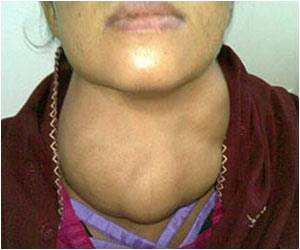The temblor has brought to the fore the importance of regional cooperation in mental health interventions for post-disaster trauma cases.

Luring in customers, primarily Europeans, has been difficult in the last four months, say shopkeepers along the famous Darbar Square and Thamel stretch of old Kathmandu. More difficult, they reveal, has been dealing with personal losses and coming to terms with the disaster that severely damaged temples and shrines in the square and reduced structures in Thamel to rubble.
"Every time there is an aftershock, we fear something might happen. This hampers our ability to function normally. We are trying our best to cope with it but the fear still looms large," a saleswoman in Thamel's Potala Thanka Art Gallery, which churns out exquisite Tibetan Buddhist paintings, told this visiting IANS correspondent.
Sujata Satapathy, an expert in dealing with post-disaster trauma, believes mental health interventions not only facilitate healing but also lead to speedy recovery and participation in income-generating activity and thereby in rehabilitation.
"Mental health interventions related to psychological trauma stemming from disasters are a must, keeping in mind the deep-rooted vulnerability of Asian countries," Satapathy, assistant professor of clinical psychology in the psychiatry department of New Delhi's All India Institute of Medical Sciences (AIIMS), told IANS via email.
Satapathy informed that women and children are particularly vulnerable while factors such as "poverty, gender role/stereotypes, patriarchal community, low level of education have very well-evidenced relationships with mental health".
Advertisement
Tourists wear a distinct look of amusement as they stroll past pouches of saffron, ilam tea and pink salt perched on stands at shop-fronts announcing cheap rates.
Advertisement
"These leftovers have to be cleared out. We have to somehow earn a living and so we are offering discounts. But new stock is slow in arriving as our workers are dealing with losses of households and members. Maybe I will shut the shop and start meditating to find some peace," mused S. Bhattarai, a salesperson in one of the discount shops.
Aftershocks come and go and residents of much of old Kathmandu, including the famous Darbar Square and Thamel, still scurry out when they feel them.
But comforting sights of college-goers sporting tees that flash a comforting 'Nepal Now: Safe to Visit' indicate that emotional scars (or technically what is known as post-trauma stress disorder) are slowly on the mend, thanks mostly to community support.
According to noted sociologist and former member of Nepal's National Planning Commission Ganesh Gurung, community support forms the backbone of the Himalayan nation's social structure.
"People reached out to one another despite their individual losses and this was also seen among households with migrant workers, where women had to take on the initial responsibility for ensuring safety of children and the old," said Gurung, the founding chairperson of Nepal Institute of Development Studies.
In Asian countries, Satapathy revealed, all types of psychological trauma interventions (ad hoc/regular) are community-based.
"Only community-based interventions would be successful, as the people would identify with their place, people, language and culture. And it's also sustainable as we, as professionals, come back after a stipulated time period," Satapathy explained, adding a resource-crunch comes in the way of other intervention models.
In August, residents of the Kathmandu Valley celebrated the 'coming out of grief' festival in memory of the lives lost.
As the country gears up for revival and restructuring into a federal nation, dealing with trauma post-disasters has assumed a new significance in regional cooperation in the light of the April 25 quake.
"India is much ahead of other SAARC/ASEAN countries in terms of providing community-based psychosocial services and research in this field. Regional cooperation is extremely important for development of a care model as we are a community-focussed society," Satapathy said.
(Sahana Ghosh was in Kathmandu at the invitation of Dhaka University's Refugee and Migratory Movements Research Unit (RMMRU) and Sussex University's Migrating out of Poverty Research Programme Consortium for a South Asian journalists' workshop on Media and Migration. She can be contacted at sahana.g@ians.in)
Source-IANS











